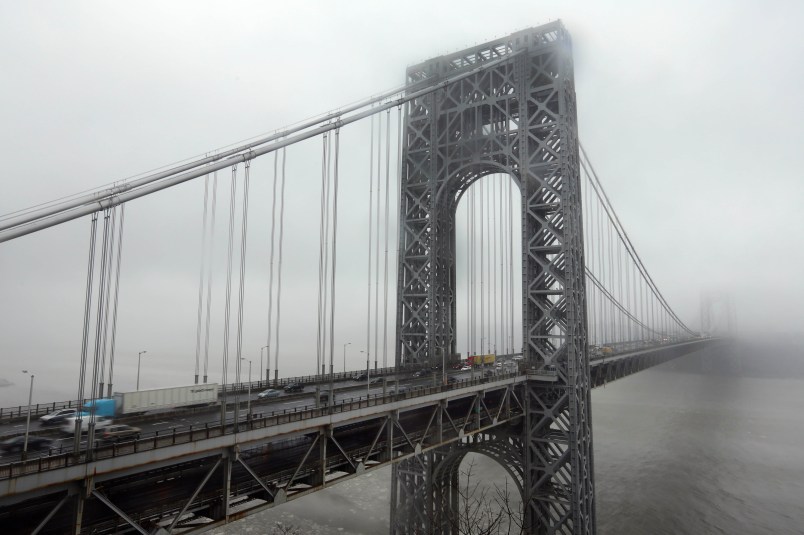Records of 911 calls obtained by the Associated Press and published on Thursday illustrate just how badly emergency workers in Fort Lee, N.J. were affected by the September lane closures on the George Washington Bridge.
Audio recordings and dispatch logs showed police and ambulance workers describing “total gridlock” on the streets and warning of delayed response to 911 calls.
“Fort Lee traffic is a nightmare,” a dispatcher said in one of the calls.
“You’re all aware the town is in total gridlock, right?” said another.
Some Democrats have alleged the lane closures were ordered by allies of Gov. Chris Christie (R) to retaliate against Fort Lee Mayor Mark Sokolich for declining to endorse the governor’s re-election bid. Christie has repeatedly denied having any knowledge of the closures.
In a letter written on Sept. 9, the first day the lanes were closed, EMS coordinator Paul Favia told Sokolich workers were delayed in responding to at least four medical emergencies. Records obtained by TPM in January showed there were at least nine traffic collisions, two of which were serious enough that victims had to be taken to a local hospital, and at least two other medical emergencies during the four days the lanes were closed.
The Associated Press review of 911 records found that the closures “appeared not to lead to anyone’s death or seriously compromise their medical care.” However, AP reporters Jack Gillum and Katie Zezima described this as “good fortune.”
“It would have been impossible for anyone responsible to have predicted that such exasperating traffic would not cause serious emergencies for police, firefighters and paramedics,” they wrote.






